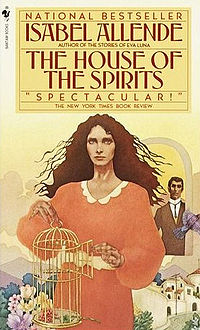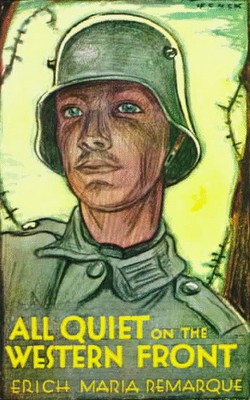The following is my [imperfect] translation. Grandma Darya to her grandson Andrey:
 "You praise the machine. That machines are working for you. Well, well. They no longer work for you, but you're working for them. And they have a lot of needs! Machine is not a horse, which you can feed oats and let it out to pasture. Machine will tear your veins open. Look how fast it runs, how it plows, scoops the earth. You're drawn to it. Machines get away from you, and you pursue them. You either catch up or not catch up with them, and these machines have created the next, without your input. Self-born, iron from iron. These new ones are faster. And you have to rush furiously so as not to be left behind. You no longer have time for each other... soon you'll ride over each other on the road, in pursuit of living faster. You know, in earlier times people had worked too, they did not sit with folded hands, but they worked leisurely, not like that. Now everything is done on the run. You run to work, and to the table - there is no time for anything. Even children are born in a race. And these children barely had time to be born, they barely stand on their feet, and are already out of breath.
"You praise the machine. That machines are working for you. Well, well. They no longer work for you, but you're working for them. And they have a lot of needs! Machine is not a horse, which you can feed oats and let it out to pasture. Machine will tear your veins open. Look how fast it runs, how it plows, scoops the earth. You're drawn to it. Machines get away from you, and you pursue them. You either catch up or not catch up with them, and these machines have created the next, without your input. Self-born, iron from iron. These new ones are faster. And you have to rush furiously so as not to be left behind. You no longer have time for each other... soon you'll ride over each other on the road, in pursuit of living faster. You know, in earlier times people had worked too, they did not sit with folded hands, but they worked leisurely, not like that. Now everything is done on the run. You run to work, and to the table - there is no time for anything. Even children are born in a race. And these children barely had time to be born, they barely stand on their feet, and are already out of breath. You do not have to act like that, you do not have to rush blindly. Why not live your life in some order, think about the memory you leave behind. A memory remembers everything, it freezes the time, every little crumb of it…"

 "Alba wondered where so many Fascists had come from overnight, because in the country's long democratic history they had not been particularly noticeable, except for a few who got carried away during World War II and thought it amusing to parade in black shirts with their arms raised in salute - to the laughter and hissing of bystanders - and had never won any important role in the life of the country. Nor did she understand the attitude of the armed forces, most of whom came from the middle and working class and had traditionally been closer to the left than to the far right. She did not understand the state of civil war, nor did she realize that war is the soldiers' work of art, the culmination of all their training, the gold medal of their profession. Soldiers are not made to shine in times of peace. The coup gave them a chance to put into practice what they had learned in their barracks: blind obedience, the use of arms, and other skills that soldiers can master once they silence the scruples of their hearts."
"Alba wondered where so many Fascists had come from overnight, because in the country's long democratic history they had not been particularly noticeable, except for a few who got carried away during World War II and thought it amusing to parade in black shirts with their arms raised in salute - to the laughter and hissing of bystanders - and had never won any important role in the life of the country. Nor did she understand the attitude of the armed forces, most of whom came from the middle and working class and had traditionally been closer to the left than to the far right. She did not understand the state of civil war, nor did she realize that war is the soldiers' work of art, the culmination of all their training, the gold medal of their profession. Soldiers are not made to shine in times of peace. The coup gave them a chance to put into practice what they had learned in their barracks: blind obedience, the use of arms, and other skills that soldiers can master once they silence the scruples of their hearts."



 Feeling foggy about the world around you? Read literature:
Feeling foggy about the world around you? Read literature: "For decades in art circles it was either a rumour or a joke, but now it is confirmed as a fact. The Central Intelligence Agency used American modern art - including the works of such artists as Jackson Pollock, Robert Motherwell, Willem de Kooning and Mark Rothko - as a weapon in the Cold War. In the manner of a Renaissance prince - except that it acted secretly - the CIA fostered and promoted American Abstract Expressionist painting around the world for more than 20 years.
"For decades in art circles it was either a rumour or a joke, but now it is confirmed as a fact. The Central Intelligence Agency used American modern art - including the works of such artists as Jackson Pollock, Robert Motherwell, Willem de Kooning and Mark Rothko - as a weapon in the Cold War. In the manner of a Renaissance prince - except that it acted secretly - the CIA fostered and promoted American Abstract Expressionist painting around the world for more than 20 years.  The Institute for Economics and Peace and Media Tenor have released "Measuring Peace in the Media":
The Institute for Economics and Peace and Media Tenor have released "Measuring Peace in the Media": "Well, I've worried some about, you know, why write books ... why are we teaching people to write books when presidents and senators do not read them, and generals do not read them. And it's been the university experience that taught me that there is a very good reason, that you catch people before they become generals... and presidents and so forth and you poison their minds with ... humanity, and however you want to poison their minds, it's presumably to encourage them to make a better world." Kurt Vonnegut
"Well, I've worried some about, you know, why write books ... why are we teaching people to write books when presidents and senators do not read them, and generals do not read them. And it's been the university experience that taught me that there is a very good reason, that you catch people before they become generals... and presidents and so forth and you poison their minds with ... humanity, and however you want to poison their minds, it's presumably to encourage them to make a better world." Kurt Vonnegut If there is a single book that one ought to read on this Veterans Day / Remembrance Day, then it ought to be the All Quiet on the Western Front, by
If there is a single book that one ought to read on this Veterans Day / Remembrance Day, then it ought to be the All Quiet on the Western Front, by  "Colonel-General Michael Goleniewski is widely credited as being one of the most important Western agents ever to have operated within the Soviet KGB and its satellite agencies. He was the vice chairman of Communist Poland's military intelligence when he escaped to the West in 1960, bringing thousands of Top Secret Soviet documents as well as information identifying hundreds of highly placed Soviet agents in western governments and intelligence agencies. Among the important communist agents Goleniewski exposed were Kim Philby, George Blake, Gordon Lonsdale, Morris and Lona Cohen, Henry Houghton, Ethel Gee, and Stig Wennerström. So strategic, timely, and reliable were his revelations that the House of Representatives of the 88th Congress passed House Resolution 5507 to honor Goleniewski's exceptional contributions to American security."
"Colonel-General Michael Goleniewski is widely credited as being one of the most important Western agents ever to have operated within the Soviet KGB and its satellite agencies. He was the vice chairman of Communist Poland's military intelligence when he escaped to the West in 1960, bringing thousands of Top Secret Soviet documents as well as information identifying hundreds of highly placed Soviet agents in western governments and intelligence agencies. Among the important communist agents Goleniewski exposed were Kim Philby, George Blake, Gordon Lonsdale, Morris and Lona Cohen, Henry Houghton, Ethel Gee, and Stig Wennerström. So strategic, timely, and reliable were his revelations that the House of Representatives of the 88th Congress passed House Resolution 5507 to honor Goleniewski's exceptional contributions to American security."
